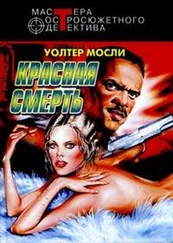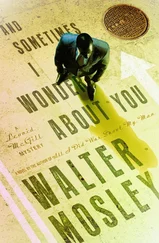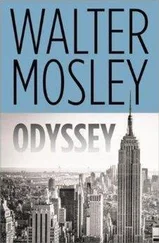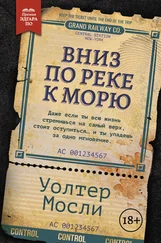Later, when they were both dressed, Colette asked him not to tell anyone.
“No,” he managed to say. “I won’t tell.”
Cornelius didn’t call Colette again that week or the next.
At night he dreamed about her riding him and biting him. He held his breath remembering how he still had a hard-on even though he was afraid that she might kill him.
“Sex,” his father had said, explaining the birds and the bees when Cornelius was thirteen, “is the prime mover in social and species discourse. It is brutal and primitive and the one true indicator that human beings are animal and not of divine origin. That is why so-called sophisticated members of society deplore the sexual act, because it takes them away from God, pulling them into the realm of the primitive totem.”
Herman never got down to genitals in his oratory.
When Cornelius asked what sex felt like his father replied, “You can pick that up in any smut. Your mother can tell you about that. What I tell you here is the understanding of all things human. From architecture to xenial relations sex is the root, the infrastructure, if you will, not only of human activities but of all life. Once you understand that you will have mastered one of the four pillars of historical thinking.”
But Cornelius wasn’t interested in history after his first sexual encounter. He couldn’t think of anything but the rough-handed Colette. He picked up the phone and dialed her number three or four times a day but hung up before it rang.
He hoped that she would come to the theater and take him out for coffee. He wanted to see her but couldn’t call.
Eighteen days passed. Cornelius was sitting next to his father’s bed reading from the Iliad, a favorite of both father and son.
Homer created fiction that told us more about his era than any historian, Herman was fond of saying. He is the proof of the fallacy of ninety-nine percent of historians and their lies.
Somehow sensing his son’s distress, Herman returned to his former self and stayed — for a while.
“What’s wrong, son?” he asked when Cornelius drifted off from reading.
“There’s a girl I like, dad.”
“Does she like you?”
“I think so.”
“Have you kissed her yet?”
“She bit me.”
Cornelius had not seen his father grin for a very long time.
“She did? How did you like that?” Mr. Jones asked.
“It hurt and I was scared.”
“Because you are used to television kisses and radio songs about what love should be,” Herman said.
“We don’t even have a TV.”
“No we do not. But everybody else does. You cannot escape the preoccupation of an entire culture, son. Cultural content, for better or worse, is like a virus. If everybody else has it then you do too.
“But try not to allow these lies to blind you. Try to see why this girl is biting you. Tell her it hurts and maybe she shouldn’t bite so hard.”
“But that’s weird,” Cornelius said.
“Better to be a weird dog chop than a mass-produced hamburger.”
An hour or so after Herman was asleep the phone rang. Cornelius thought it might be his mother.
“Hello?”
“Is your father asleep?” Colette asked.
“Yes.”
“Then come on over to Manhattan, to the place we went last time.”
“No.”
“If you don’t I’ll come get you.”
Cornelius had no doubt that she knew his address. She had gotten his unlisted phone number.
It was near two a.m. when Cornelius climbed the stairs to the police apartment. Colette stood at the open door, waiting.
“Come on in, CC.”
She was wearing a purple dress that went all the way to the floor. But the straps were thin and the neckline was low. He could see her breasts.
“Take off your clothes and lie down on your stomach on the floor.”
“No.”
“Do you want me to take them off for you?” she asked with not the slightest hint of threat in her tone.
Cornelius took off his clothes but he lay down on the couch.
“I said the floor,” Colette said.
“No.”
She pulled off her dress then and lay down on top of him. She kissed his neck and he sighed.
“I wanted to apologize,” she said. “I didn’t mean for that to happen the other day. It’s just that you got hard when we were wrestling and that made me excited because you’re so damn cute.”
All of this she whispered in his ear; her voice raspy, her breath smelling of liquor.
“I won’t hurt you again, baby,” she said. “Okay?”
Cornelius nodded.
“Will you still be friends with me?”
He nodded again.
“Do you want to cry for me now?”
Cornelius tried to shake his head but a torrent of tears stopped him.
“Give it to me, baby,” Colette crooned, caressing his legs with hers, kissing the back of his neck. “Give it up. Let it out. Cry for me, honey.”
After a while Cornelius turned around wanting to make love to her but she held him off.
She whispered, “After the other day we need some time without it.”
“Okay,” Cornelius said. “But when can we see each other again?”
“Maybe you should be seeing girls your own age.”
“But we could be friends like you said.”
“Friends don’t have to see each other all the time,” Colette argued caressing his fingers.
“I need a friend.”
“Call me,” she said. “You can sleep here if you want and go home in the morning.”
She donned her purple dress and went quickly, leaving Cornelius with a hollow feeling in his chest.
He sat in the dark room, naked and aroused, thinking of how much he was in love with Colette. Her physical warmth, her long nails and teeth, her painful knowledge centered on him.
Herman was right, Cornelius thought, we are animal.
He turned off the light but didn’t fall asleep.
In this way Cornelius entered a new tempestuous period of his life.
The next semester he took four morning classes, forging a permission slip from his father. At noon almost every day he took the train to Manhattan to see Colette. They did things to each other which Cornelius had never read about, heard of, or seen in dirty magazines.
Love, his father had said, when Cornelius pressed him on the subject, is peculiar. Real lovers’ acts of passion are repellent to others, not like the pictures you see in those so-called adult magazines.
It wasn’t much but it was enough to tell Cornelius that he was on the right track with his policewoman girlfriend.
At the end of their afternoons of ardor, and often tears, Cornelius would go to work doing push-ups and sit-ups in the projectionist’s booth so that he could outwrestle his powerful lover.
At night he read to his father, though Herman’s acumen had become spotty again.
“Who are you?” he would sometimes ask when Cornelius walked into the bedroom.
“It’s me, dad.”
“Oh. Right. Hello... son.”
At first Cornelius thought that it was his father’s eyesight going. But then Herman began to lose quotes.
“As Hobbes... Hobbes once... oh. It does not matter really. He was a churl old Hobbes. Anyway philosophy is important only for its understanding of history. History is everything.”
He’d strain to recall phrases, which more and more were lost to him. He was nowhere near retirement age but Herman was already an old man.
“All that reading must have burned out my insides, Cornelius,” he said on one lucid day. “All the books I have read swirl around like an ocean, with every page a wave. And now I drift in that vastness buoyed up by slippery knowledge, starving from want of anything with sustenance.”
Читать дальше












